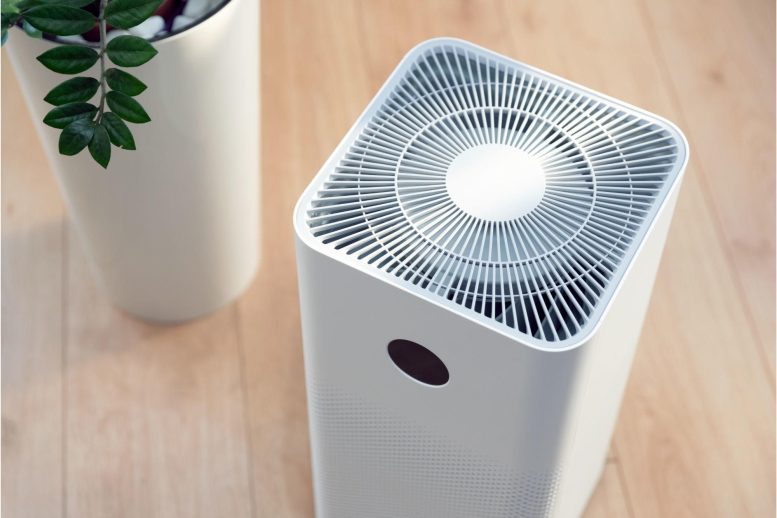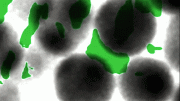
New research indicates that air filtration technologies, like germicidal lights and ionizers, do not effectively reduce the risk of viral infections in real-world environments, challenging the perceived benefits of these costly systems in public health settings.
Air filtration systems are not effective in lowering the risk of viral infections, as revealed by recent research from the University of East Anglia.
A new study highlights that technologies aimed at enhancing safety during social interactions indoors may not be successful in practical settings. The research team examined various technologies such as air filtration systems, germicidal lights, and ionizers.
They looked at all the available evidence but found little to support hopes that these technologies can make air safe from respiratory or gastrointestinal infections.
Prof Paul Hunter, from UEA’s Norwich Medical School, said: “Air cleaners are designed to filter pollutants or contaminants out of the air that passes through them. When the Covid pandemic hit, many large companies and governments – including the NHS, the British military, and New York City and regional German governments – investigated installing this type of technology in a bid to reduce airborne virus particles in buildings and small spaces. But air treatment technologies can be expensive. So it’s reasonable to weigh up the benefits against costs, and to understand the current capabilities of such technologies.”
Evidence Analysis and Research Findings
The research team studied evidence about whether air cleaning technologies make people safe from catching airborne respiratory or gastrointestinal infections.
They analyzed evidence about microbial infections or symptoms in people exposed or not to air treatment technologies in 32 studies, all conducted in real-world settings like schools or care homes. So far none of the studies of air treatment started during the Covid era have been published.
Lead researcher Dr. Julii Brainard, also from UEA’s Norwich Medical School, said: “The kinds of technologies that we considered included filtration, germicidal lights, ionizers, and any other way of safely removing viruses or deactivating them in breathable air. In short, we found no strong evidence that air treatment technologies are likely to protect people in real-world settings. There is a lot of existing evidence that environmental and surface contamination can be reduced by several air treatment strategies, especially germicidal lights and high-efficiency particulate air filtration (HEPA). But the combined evidence was that these technologies don’t stop or reduce illness.
“There was some weak evidence that the air treatment methods reduced the likelihood of infection, but this evidence seems biased and imbalanced. We strongly suspect that there were some relevant studies with very minor or no effect but these were never published. Our findings are disappointing – but it is vital that public health decision makers have a full picture. Hopefully, those studies that have been done during Covid will be published soon and we can make a more informed judgment about what the value of air treatment may have been during the pandemic.”
Reference: “Effectiveness of filtering or decontaminating air to reduce or prevent respiratory infections: A systematic review” by Julii Brainard, Natalia R. Jones, Isabel Catalina Swindells, Elizabeth J. Archer, Anastasia Kolyva, Charlotte Letley, Katharine Pond, Iain R. Lake and Paul R. Hunter, 20 November 2023, Preventive Medicine.
DOI: 10.1016/j.ypmed.2023.107774
This research was led by the University of East Anglia with collaborators at University College London, the University of Essex, the Norfolk and Norwich University Hospital Trust, and the University of Surrey.
It was funded by the National Institute for Health and Care Research Health Protection Unit in Emergency Preparedness and Response, led by Kings College London and UEA in collaboration with the UK Health Security Agency.









Although there is no definitive proof that aircleaners reduce infections, there are indications that some, including HEPA, reduce concentrations of disease causing droplets. I see no data on measurements of air exchange rates or cubic feet per minute ratings of the various aircleaners. An air cleaner that exchanges air more rapidly can have an effect on filtering ability of the air cleaner and the susequent quality of air in the room. There is also no mention of PM2.5 particles. Research indicates that small particles (PM2.5) can indeed cause long term problems. I use an air quality measuring instrument and regularly find the PM2.5 and Air Quality Index (AQI) to be lower by a factor of 10 indoors where we have multiple high output HEPA filters. So, although this paper indicates no real decernible disease prevention by aircleaners, at least the aircleaners of unknown capabilities that were cited, there’s still much benefit in overall air quality improvement by high quality HEPA filtration.
Funny enough similar research done in one of the Nordic countries resulted completely opposite result. Reasons can be many, including the filtering system. Yet one difference, that research was conducted in the nusery schools. Side effect was reduced viral infections at homes.